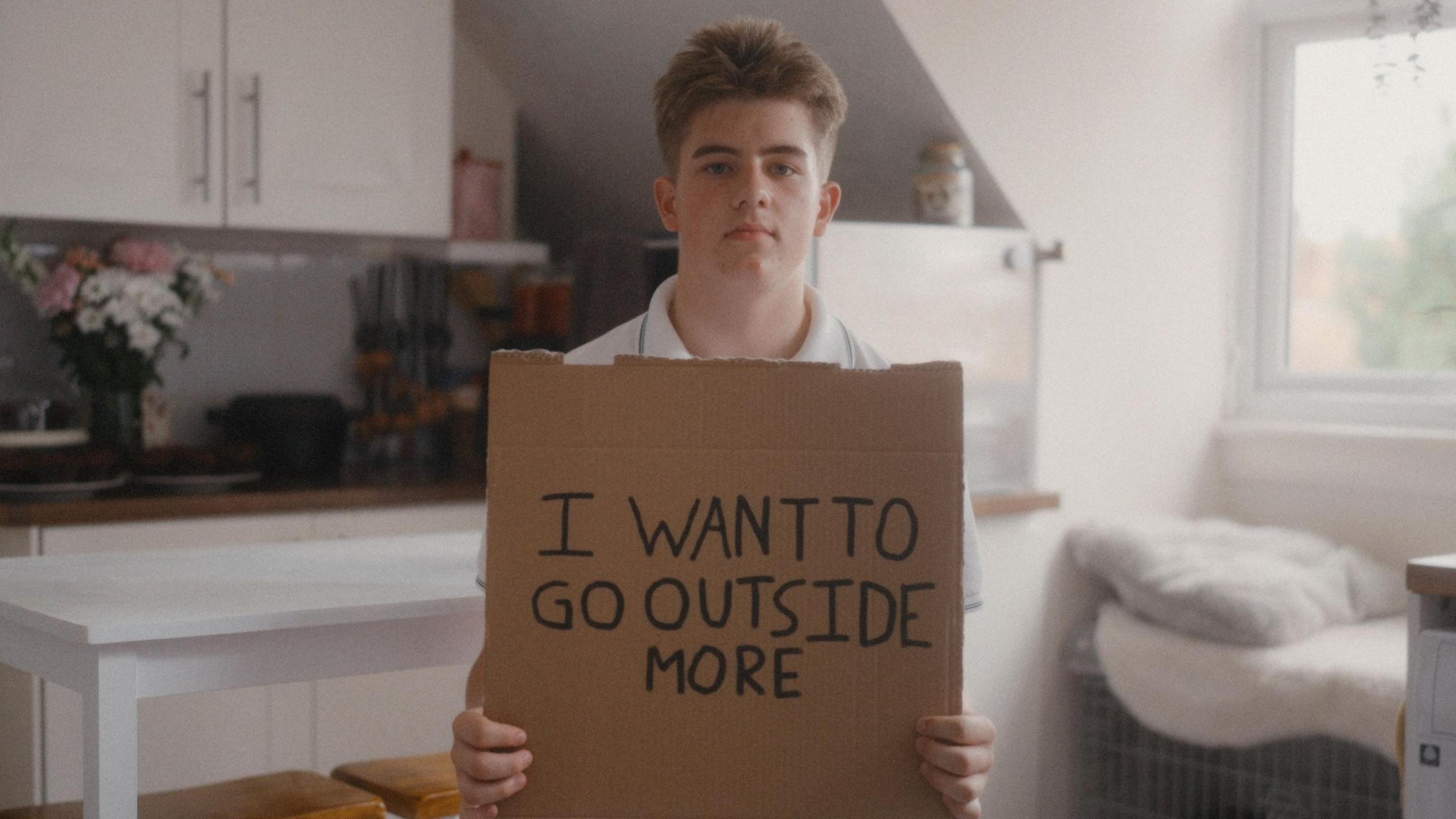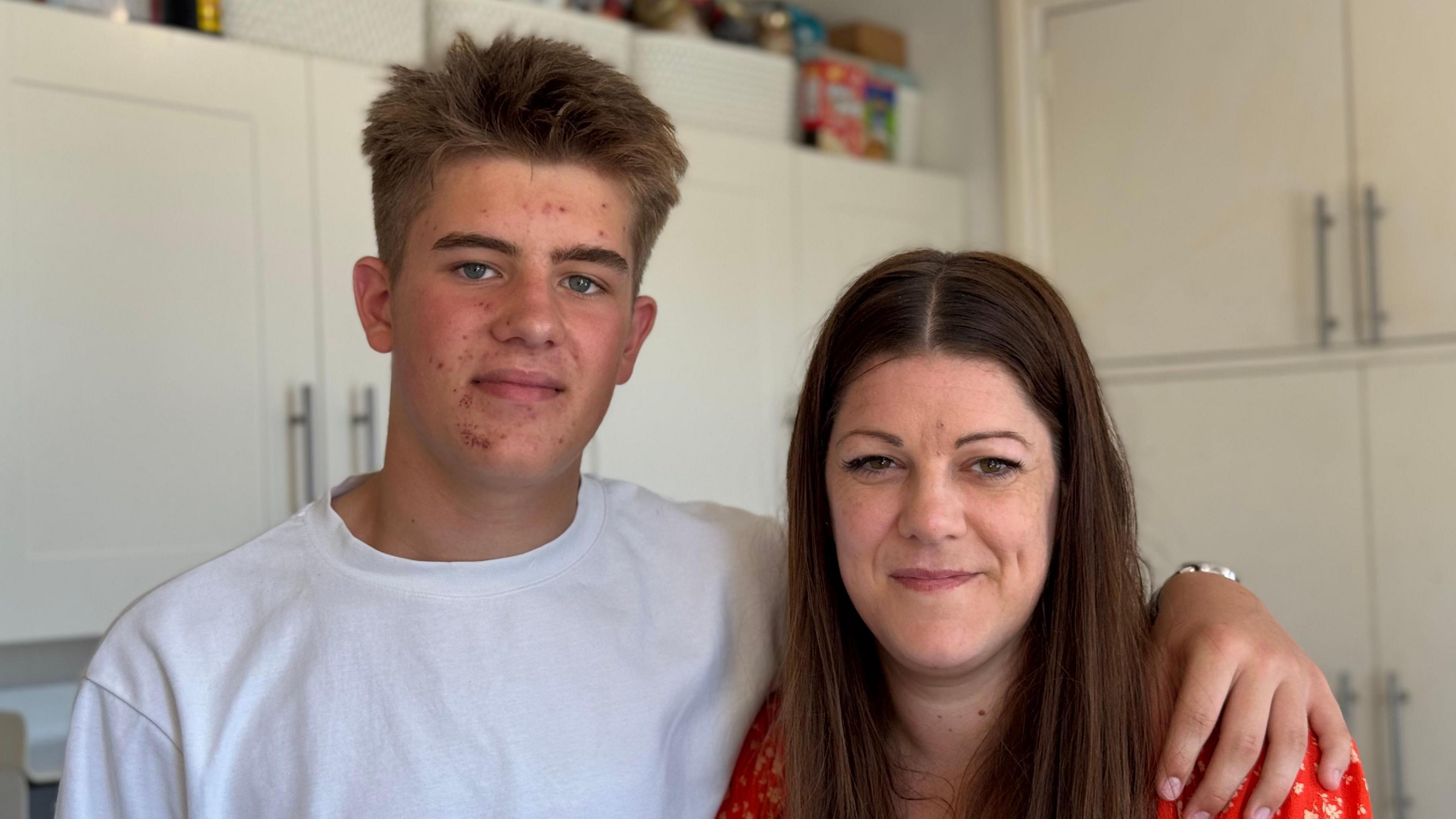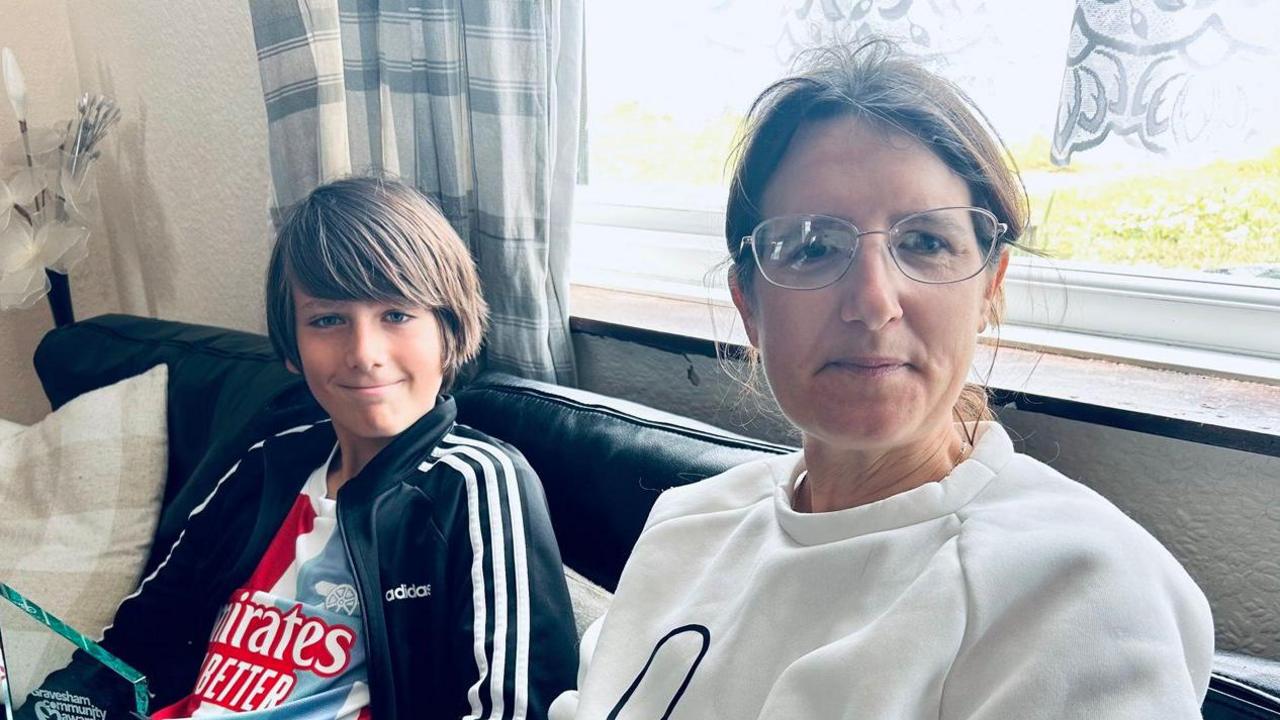'Caring for mum is a constant worry', says teenager

Oliver, 15, is protesting from home in Eastbourne via screens outside Parliament to call for more support for unpaid carers like him
- Published
A teenager from East Sussex is joining a virtual protest at Parliament from home via video screens on Tuesday because his caring duties mean he cannot travel to London.
Oliver, 15, from Eastbourne, is joining unpaid carers from around the country who say planning a holiday at this time of year feels "like a pipe dream" because of a lack of respite support.
A new study by the Carers Trust shows almost one in three unpaid carers rarely take a respite break with a lack of downtime leaving 60% reporting feelings of burnout.
The Department of Health and Social Care said it was giving billions of extra funding for unpaid carers and an independent commission had been launched to bring wider reforms.

Oliver, who has been caring for his mum Wendy since he was eight, only realised he could get recognition when someone told him support was available
Oliver became a carer when he was eight years old after his mum Wendy collapsed unexpectedly at home, leading to open heart surgery and a mechanical heart being fitted.
Four years later a stroke led to Wendy losing some mobility in her right hand side.
Oliver said he had always been happy to look after his mum, but he did not realise he was a young carer for several years until someone told him that support and recognition was available.
"It makes a huge difference," he said.
"Having someone to talk to, who understands what you're going through and has an idea of what you need is really helpful."
He said help could be counselling, other carers to talk to or "activities or trips which take you outside of your normal life".
"It can feel constant, like it's your whole life caring sometimes," he added.
"In the mornings you care, when you get home from school, you care. Having those breaks is key to living rather than just caring."
Oliver said that caring didn't mean just doing the dishes, washing clothes and hoovering, as there was a "huge mental side effect as well, where you're constantly worrying about the person you care for".
"It's a feeling that drags you down sometimes, that you need to be there for that person all the time," he said. "Having support really does lift that weight off you."
'Huge responsibility'
His mum Wendy said Oliver was a very caring person who never complained, but she was grateful he could be supported to have some days out without her where he could "just be a kid".
She added: "It's such a huge responsibility, I couldn't imagine at his age doing what he does. I'm so proud of him."
Kirsty McHugh, CEO of Carers Trust, said it was "incredibly disappointing" that the UK Government still hadn't given unpaid carers a right to respite and that it "seemed to have forgotten unpaid carers" as it works to strengthen employment rights.
She said: "For decades, successive governments have depended on unpaid carers to provide social care on the cheap, which has delayed the need to come up with long-term funding and support."
In a statement, the Department of Health and Social Care said: "We value the immense contribution of all unpaid carers. To help social care authorities support carers we are providing a funding boost of up to £3.7 billion this year – which includes help for unpaid carers.
"We have also increased the Carer's Allowance earnings threshold by around an extra £2,000 a year – the biggest rise since it was introduced in 1976 - and are reviewing carer's leave to see whether further help is needed.
"As part of wider reforms, Baroness Louise Casey has begun her work on the Independent Commission into Social Care, which will include exploring the needs of unpaid carers."
Follow BBC Sussex on Facebook, external, on X, external, and on Instagram, external. Send your story ideas to southeasttoday@bbc.co.uk, or WhatsApp us on 08081 002250.
- Published12 June
